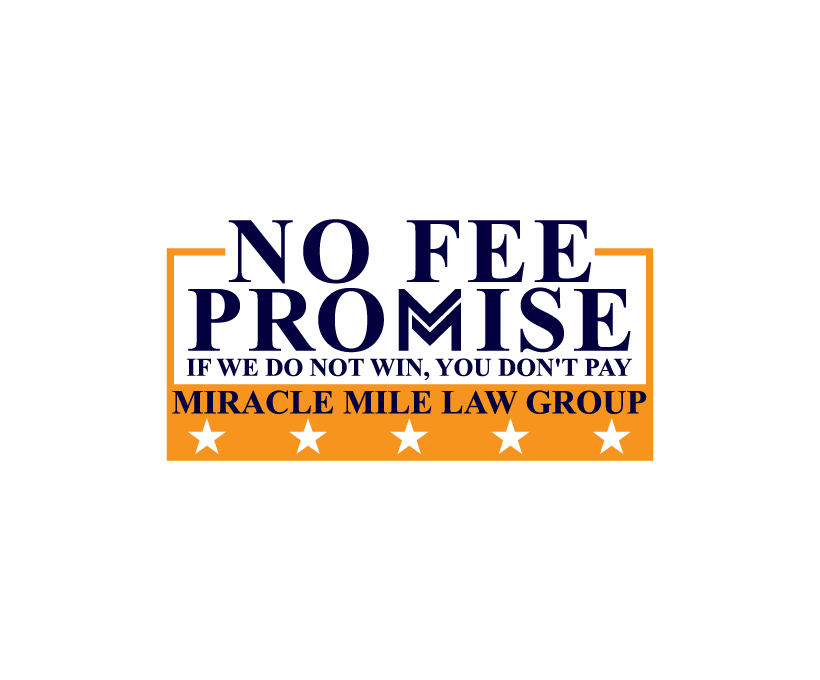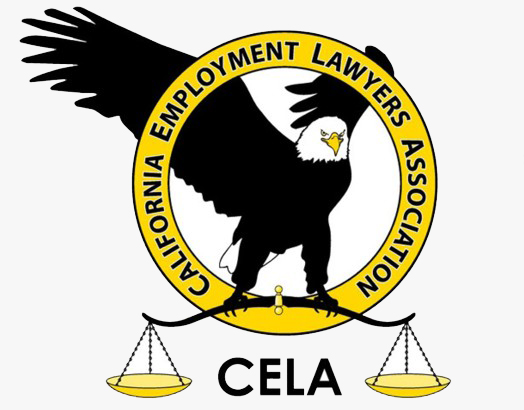Wage & Overtime
You work hard for the money you earned and are entitled to.
Los Angeles Wage & Hour Attorneys
You work hard for the money you earned and are entitled to. Whenever an employer fails to pay you your wages and/or overtime, whether it be because of misclassification of employment status or inaccurate computation, you may be entitled to damages and penalties under the various Wage & Hour laws.
If you think you may have a wage and hour claim against your employer, you may find yourself asking some of these questions:
- Can my boss take my tips?
- Why does my boss pay me late?
- My boss pays me in cash, what do I do?
- Why doesn’t my boss pay me on time?
- Why doesn’t my boss let me take lunch?
- My boss doesn’t let me take rests, what do I do?
- My boss doesn’t want to pay me, what do I do?
- Can my boss force me to work overtime without paying me?

First, California Labor Code 201(a) (Failure to Pay the Wages within 72 hours of termination: CA Labor Code 202(a)): Under 201(a) your employer is liable for the actual damages owed for unpaid overtime.
Second, CA Labor Code section 202(a) states that, “If an employee not having a written contract for a definite period quits his or her employment, his or her wages shall become due and payable not later than 72 hours thereafter, unless the employee has given 72 hours previous notice of his or her intention to quit, in which case the employee is entitled to his or her wages at the time of quitting. Notwithstanding any other provision of law, an employee who quits without providing a 72-hour notice shall be entitled to receive payment by mail if he or she so requests and designates a mailing address. The date of the mailing shall constitute the date of payment for purposes of the requirement to provide payment within 72 hours of the notice of quitting.This means that if you quit your job, the employer must give your wages within 72 hours of giving them notice of your resignation. If you are terminated, the employer must give your paycheck that same day.
Third, CA Labor Code 226 (Failure to Provide Accurate Wage Statements): Under Labor Code 226, your employer must (1) gross wages earned, (2) total hours worked by the employee, except as provided in subdivision (j), (3) the number of piece-rate units earned and any applicable piece rate if the employee is paid on a piece-rate basis, (4) all deductions, provided that all deductions made on written orders of the employee may be aggregated and shown as one item, (5) net wages earned, (6) the inclusive dates of the period for which the employee is paid, (7) the name of the employee and only the last four digits of his or her social security number or an employee identification number other than a social security number, (8) the name and address of the legal entity that is the employer and, if the employer is a farm labor contractor, as defined in subdivision
You work hard for the money you earned, and you are entitled to the money in the first place. Whenever an employer fails to pay you overtime, whether it be because of misclassification of employment status or inaccurate computation, you may be entitled to damages and penalties under the various Wage & Hour laws.
First, California Labor Code 201(a) (Failure to Pay the Wages within 72 hours of termination: CA Labor Code 202(a)): Under 201(a) your employer is liable for the actual damages owed for unpaid overtime.
Second, CA Labor Code section 202(a) states that, “If an employee not having a written contract for a definite period quits his or her employment, his or her wages shall become due and payable not later than 72 hours thereafter, unless the employee has given 72 hours previous notice of his or her intention to quit, in which case the employee is entitled to his or her wages at the time of quitting. Notwithstanding any other provision of law, an employee who quits without providing a 72-hour notice shall be entitled to receive payment by mail if he or she so requests and designates a mailing address. The date of the mailing shall constitute the date of payment for purposes of the requirement to provide payment within 72 hours of the notice of quitting.This means that if you quit your job, the employer must give your wages within 72 hours of giving them notice of your resignation. If you are terminated, the employer must give your paycheck that same day.
Third, CA Labor Code 226 (Failure to Provide Accurate Wage Statements): Under Labor Code 226, your employer must (1) gross wages earned, (2) total hours worked by the employee, except as provided in subdivision (j), (3) the number of piece-rate units earned and any applicable piece rate if the employee is paid on a piece-rate basis, (4) all deductions, provided that all deductions made on written orders of the employee may be aggregated and shown as one item, (5) net wages earned, (6) the inclusive dates of the period for which the employee is paid, (7) the name of the employee and only the last four digits of his or her social security number or an employee identification number other than a social security number, (8) the name and address of the legal entity that is the employer and, if the employer is a farm labor contractor, as defined in subdivision
You work hard for the money you earned, and you are entitled to the money in the first place. Whenever an employer fails to pay you overtime, whether it be because of misclassification of employment status or inaccurate computation, you may be entitled to damages and penalties under the various Wage & Hour laws.
The Federal Labor Standards act sets minimum wage in the United States at $7.25 per hour. However, States are free to enact laws that modify the minimum wage standards. For example, in Seattle, minimum wage is set to $15. Here in California, as of 2018, the minimum wage for employers with 1-26 employees is $10.50, while the minimum wage for employers with 26+ employees is set at $11.00 per hour. These wages are set to increase incrementally each year until 2023. When an employer fails to properly pay you overtime, in essence, all of your wage statements are inaccurate and CA Labor Code 226 is triggered.
California employers are required to provide every employee with an accurate wage statement that sets forth the employee’s gross wages, total hours worked, all deductions taken, net wages earned, amongst other things. When a violation of Labor Code §226 has occurred the employee may be entitled to: (1) $50 for the initial pay period in which a violation occurs and $100 per employee per pay period for each additional violation up to $4,000 plus an award of reasonable attorney’s fees and costs.
There are two different ways that an employee can seek redress for unpaid wages or unpaid overtime: 1) they can file a complaint with the Department of Labor’s Wage and Hour division, or 2) file a complaint in a court of law. To file a complaint with the Department of Labor’s Wage and Hour division, you’ll need the following information:
- Your name
- Your address and phone number (how you can be contacted)
- The name of the company where you work(ed)
- Location of the company (this may be different from where you worked)
- Phone number of the company
- Manager or owners name (who should we ask to speak to?)
- Type of work you did
- How and when you were paid (i.e. cash or check, every Friday)
However, an employee can also file a civil suit in a court of law represented by a lawyer. In these situations, the employee can recover back pay and other legal remedies.
Statute of Limitations refers to the amount of time you have to file a lawsuit before the deadline passes. However, since there are three different options to file your Wage and Hour Violation claim, the Statute of Limitations depends on how you file your claim.
- With the California Department of Industrial Relations—sometimes called the Labor Commissioner’s Office. Under this option you have three years from the date your claim arose. However, your right to some penalties could expire after one year.
- As civil lawsuit in state court. Under this option you have three years from the date your claim arose to file your Wage and Hour Violation claim.
- As a lawsuit in federal court. Under this option you have three years from the date your claim arose to file your Wage and Hour Violation claim.
- $35 million: A class of over 223 workers were hired to maintain dishwashers and push/promote the company’s vast array of products. The class alleged that their employer misclassified them as overtime exempt, failed to pay them for overtime hours worked, and didn’t provide meal breaks. The case was eventually settled for $35,000,000. See Icard v. Ecolab, Inc.
- $16.5 million: Two class actions filed on behalf of thousands of hospital workers alleged the hospital failed to pay for late hospital shifts and missed meal breaks. Employees were allegedly forced to waive certain meal breaks as a condition of employment. The settlement includes $5.5 million in attorneys’ fees and the case settled for a total of $16,500,000. See Escano et al. v. Kindred Healthcare Operating Services, Inc.
HAVING AN ATTORNEY BY YOUR SIDE GREATLY INCREASES THE CHANCE FOR RECOVERY.
Contact a Los Angeles Wage & Hour Lawyer today. We offer free consultations and you pay nothing unless we win.
The lawyers at Miracle Mile Law Group are specially trained in handling wage and overtime lawsuits. If you believe you are owed backpay, unpaid overtime or not getting your meal and rest breaks, contact a Los Angeles wage and overtime attorney today. These cases are very time sensitive so give us a call at (888) 244-0706 or contact us online for a FREE case evaluation. Remember, we do not take a single dollar unless WE WIN!
Services in Los Angeles




